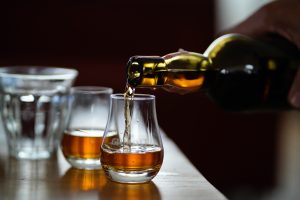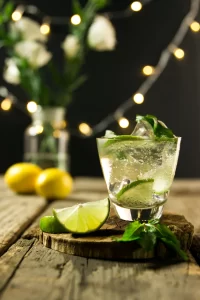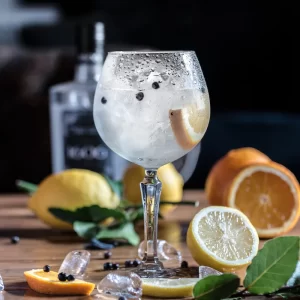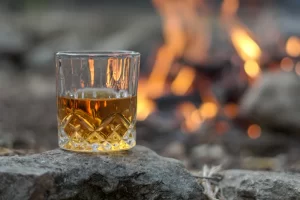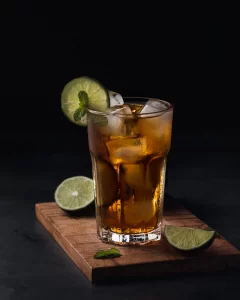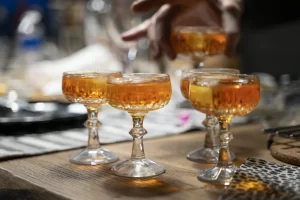New Jersey Liquor Laws And Regulations
New Jersey has some of the most complex state laws governing alcoholic beverages in the U.S., with most of the odd laws not found in the laws of other states.
There are 29 distinct liquor licenses that are granted to wholesalers, public warehousing, retailers, and manufacturers, as well as alcoholic beverage transportation. General authority for the regulatory and statutory control of alcoholic beverages is enforced by the state government.
If you want to know the laws for buying alcoholic beverages, or what the regulations are regarding this as a potential seller or manufacturer, then keep reading!
The Most Complex Alcohol Laws In The US
Under home rule, these laws grant individual municipalities a lot of discretion in ordinances regulating the sale and consumption of alcoholic beverages within limits.
The number of retail licenses available will be determined by the population of a municipality and then again by the governing body of the town. Some municipalities in New Jersey are even ‘dry towns’ which do not allow the sale or retail license for alcoholic beverages at all.
However, some other towns allow alcohol sales 24 hours per day.
Municipal Control
New Jersey is a state with traditional municipal home rules, where local municipalities will have considerable authority in the regulation and licensing of alcohol-related businesses.
Some of these powers include but are not limited to the following:
- The limitation of licenses able to sell alcoholic beverages in a retail setting (A Class C license).
- The limitation on hours of retail alcohol selling.
- The prohibition of retail sales of alcoholic beverages on a Sunday.
- The regulation of the nature and condition of any licensed premises.
- Limitations of the persons within a municipality who have a single liquor license.
- The limitations of a license are to cover specific licensed premises.
- The ability of municipalities that have populations over 15,000 to be able to appoint a municipal alcoholic beverage control board, containing three people each who will serve a 3-year term.
Retail licenses for distribution or consumption are allocated in proportion to the population of a municipality. Licenses that permit on-premises retail sale and consumption, such as bars or restaurants, will be allocated a ratio of one license per 3,000 residents.
On the other hand, distribution licenses are available at a ratio of 1 per 7,500 residents. A small town with a population below 1,000 can issue one distribution and one consumption license.
Due to this, the number of licenses in a municipality can depend on many aspects of the town. These factors could include:
- Whether or not the existing licenses of the municipality were “Grandfathered” and thus predate the 1948 imposition of limits of retail licenses per town.
- If the town has chosen to offer fewer licenses.
- If the municipality has chosen by referendum or ordinance to be dry and prohibit alcoholic beverage sales in its limitations.
New Jersey offers 29 liquor licenses which are divided into 5 classes.
- Class A is for manufacturers.
- Class B is for wholesalers.
- Class C is for retailers.
- Class D is for transportation.
- Class E is for public warehouses.
State law in New Jersey allows for the DABC (Division of Alcoholic Beverage Control) to create temporary permits, however, special permits are allowed ranging from $10 to 42000 and are limited for 25 days each year to the selected premises. There are also 3 permits for non-licensees.
Let’s take a look at the Class A licensing for manufacturers/distilleries to see just how unique the New Jersey State Alcohol regulations are.
Class A Manufacturers Licensing
Let us look at the primary Class A Manufacturer Licensing regulations for distilleries in New Jersey.
| License Type | Permitted Activity | License fee |
| Plenary distillery license |
| $12,500 |
| Limited distillery license |
| $3,750 |
| Supplementary limited distillery license |
|
|
| Craft distillery license |
| $938 |
Issues
With New Jersey being a state that utilizes municipal law, there are some issues surrounding liquor laws in the state.
Liquor License Availability In Retail

One of the issues is how the amount of Class C licenses for restaurants, bars, and liquor stores are limited by population.
These licenses are usually obtained from existing licensees who sell, or when a population grows. However, this makes new retail license costs very expensive.
Superstores, gas stations, and convenience stores rarely sell alcohol as the state law prevents any corporation or person from having more than two retail distribution licenses.
However, while this is an issue with restaurants and bars, it is not with common carriers.
Dry Towns
Another issue is that in South Jersey there are a lot of dry towns where no alcohol can be sold or served. Some of these are so due to religious reasons.
A dry town cannot forbid the consumption, possession, or transportation of alcohol, however, they can prevent bringing one’s own alcohol into restaurants, and social affairs.
Dry towns can have breweries or wineries, however.
Dry towns are reducing in number.
Regulations
Local ordinance regulates the hours of on-premises consumption. While Atlantic City does not have closing hours, and aside from Jersey City and Newark, all hard liquor packaged goods sales are forbidden between 10 pm and 9 am all week.
Overall
New Jersey has the most complicated alcohol laws and regulations in the United States, having a municipality works well for them, but can make the laws per township confusing.
Always ensure you check both state and municipality laws in New Jersey if you want to sell alcohol there!
